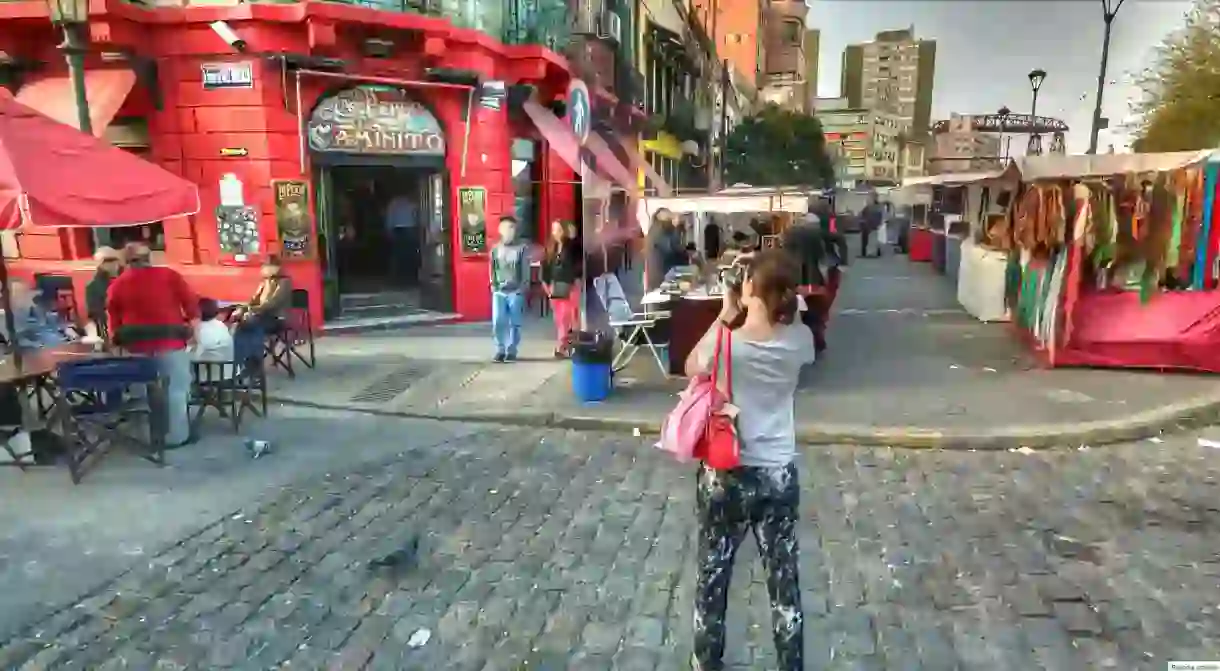These 11 Words Have a Whole Different Hilarious Meaning in Argentina

All across the Spanish-speaking world, from the motherland Spain to Mexico and down south to Argentina, there are many variations on how the language is spoken and what different words mean. But nowhere is this more evident than Argentina. We check out some of the funniest words that often get lost in translation.
Coger
Perhaps the daddy of all words that translates from something totally normal in Spain to something hilarious in Argentina is “coger.” In Spain this verb means “to take,” as in “take the bus,” or “coger el bus.” But here in Argentina, it means to f**k, as in to have sex with. Cue Spaniards being helpful and telling Argentines where to catch the bus, and Argentines giggling behind their hands as they hear “coger” here and “coger” there.

Pija
Another naughty one, but hey, let’s be honest, most of the funniest words are. A little surprising to people who wouldn’t normally associate a male body part as having a masculine gender in Spanish, but “la pija” in Argentina is a penis. Whereas in slang in Madrid, “pija” is used to describe a posh or fancy person (in Argentina this word is “cheto/a”).
Concha
Not to be outdone by the penis, the vagina also has its own funny terminology in Argentina. “La concha” is the innocent word for “the shell” in Castilian Spanish. But in Castellano, or Argentina’s version of Spanish, “una concha” translates locally as “the vagina,” or more crudely, “the c**t.” Nice.

Colectivo
You will hear this thrown about constantly in Argentina, and a “colectivo” here is a slang word for the public bus. It comes from the longer term “vehículos de transporte colectivo” or “vehicles for collective transport,” which refers to how the bus originated here as a shared taxi service. In regular Spanish, “el colectivo” translates to, as you might imagine, “the collective.”
Micro
Public transport gets a few shout outs on this list, and next up is “micro,” which is a term used for a long distance bus, as opposed to a commuter bus within the city. In Spanish outside Argentina, a “micro” is a microphone (which it also is in Argentine Spanish, but the slang “micro” refers to the bus).
Bondi
Argentines love the bus, so why not give it yet another slang word. In Argentina, a “bondi” is another word for a “colectivo,” or public bus. However, it is also a cut of meat, “bondiola de cerdo,” or pork shoulder. It is thought that the word “bondi” has its origins in Brazil, where the word “bond” preceded a tram ticket, and so it became associated with public transport at the beginning of the 20th century. Others think that it originates from Italian immigrants who used to take the “bonde” from Montevideo to Buenos Aires.

Ojo
Literally translating to “eye,” “ojo” in other Spanish-speaking countries is just that—an eye. But here in Argentina, you will often see the utterance of the word “ojo” with a finger that pulls down the skin under the eye, and the whole combination together is a warning that means “watch out.” It could be, “watch out, it’s going to rain later,” or “watch out for that guy, he’s a total player.”
Chupar
Literally translating as “to suck” in English, a verb which is used in this way in most Spanish-speaking countries, in Argentina “chupar” also means to drink alcohol. Heavily.
Cagar
“Cagar” is pretty much universal in its usage to mean “to s**t” in Spanish, but here in Argentina it is also used to mean to screw someone over. And Argentines think that everyone is constantly out to screw them over, which might explain why it is so widely used in that context here!
Cachucha
Another lewd one, but why stop now? “Cachucha” has a variety of meanings outside Argentina—a small boat, perhaps, or a piece of headwear. However, down here in the Southern Cone it is another way of describing a woman’s vagina. I suppose you can never have enough!

Trucho/a
A “trucha” translates into “trout,” as in the fish. But in Argentina, when used as an adjective instead of a noun, it can be taken to mean something false or fake, for example “una marca trucha” is a fake brand, such as a fake Louis Vuitton bag or fake Nike trainers.













